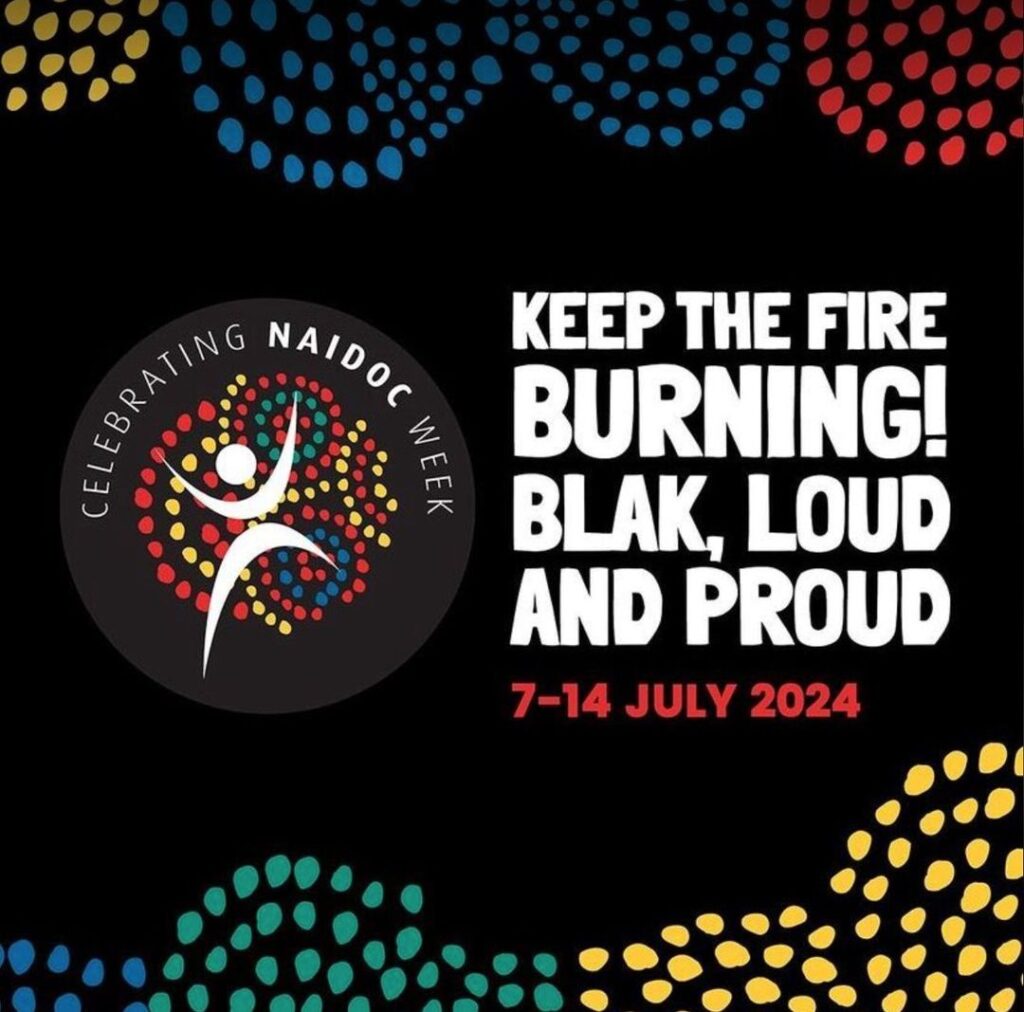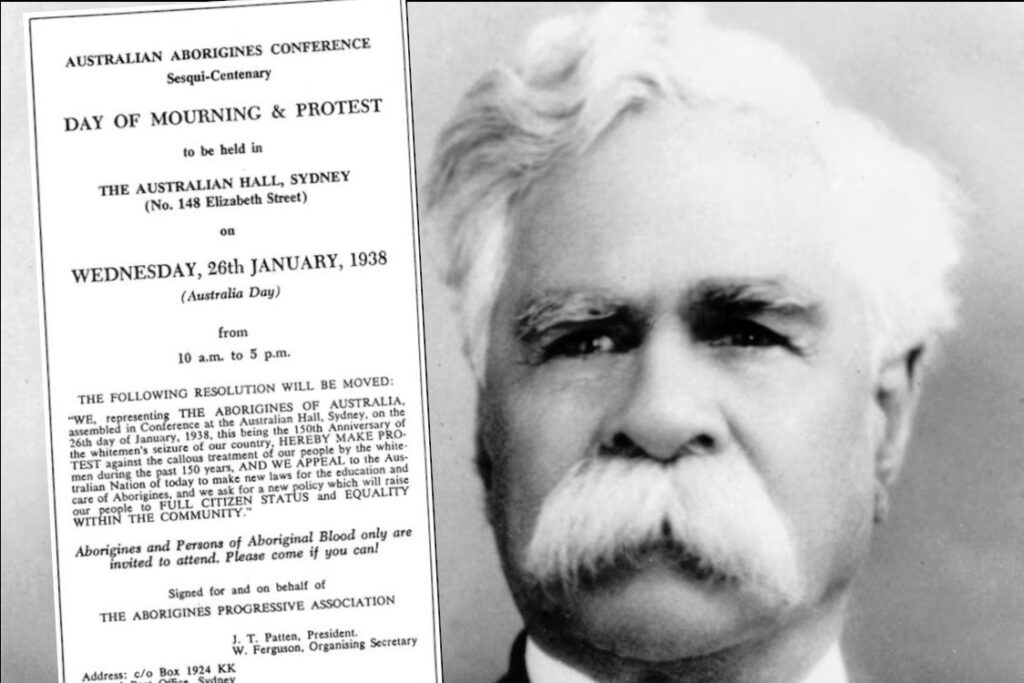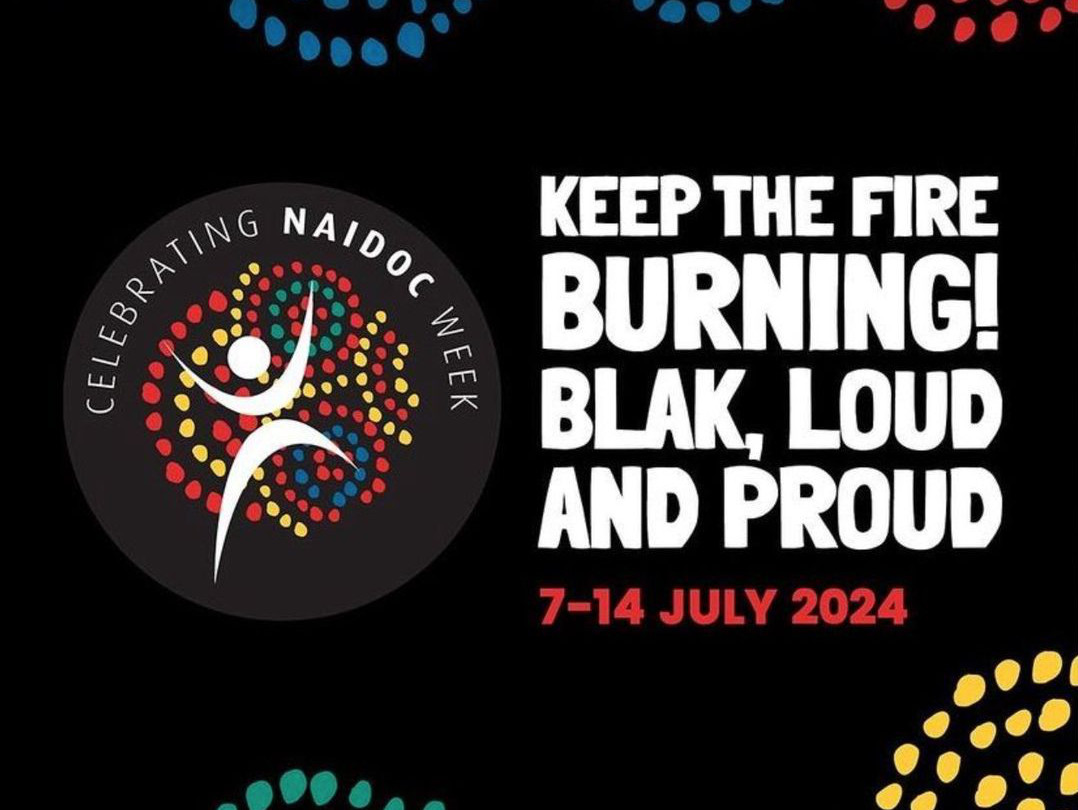An assiduous reader of Christian social media – including this writer’s – pointed The Other Cheek to the facebook page of the Australian Christians political party Facebook page. The party, strongest in WA, is a conservative party similar to the former Christian Democrats in NSW, but still very much alive. And there we find this year’s Naidoc Week logo, which with the Keep the Fire Burning is pretty widespread and one would have thought uncontroversial.

The Australia Christians say “Celebrating NAIDOC 2024! ![]()
“This year’s NAIDOC theme, “Keep the Fire Burning! Blak, Loud & Proud. It’s about standing tall, embracing heritage, and amplifying voices. At Australian Christians, we value the diversity of Aboriginal culture! We believe in the value of working in together as Australians – listening carefully to foster connection and collaboration.
“We should all strive to make our Nation a better place ![]() Let’s celebrate the diversity of Aboriginal and Torres Strait Islander culture and peoples this week and reflect on how we can all make a difference in our own backyard!”
Let’s celebrate the diversity of Aboriginal and Torres Strait Islander culture and peoples this week and reflect on how we can all make a difference in our own backyard!”
You might think that’s brave for a relatively conservative group.
Maybe it was because it was too strong for some Christians. (As they comment on that page, The Other Cheek is making theassumption the commenters are Christians.)
The Other Cheek found these comments: “As a Christian, I don’t celebrate anything that separates Australians by the colour of their skin. Disappointing to see a Christian party supporting this.”
“How about just Celebrating Jesus Christ who unites people of all nations, tribes and tongues”
With some responses: “I don’t think there is anything wrong with celebrating aboriginal culture. Did you know that Aboriginals have a higher percentage of Christians then the overall population?”
And to someone who said possibly sarcastically “Is this about bringing Australians together?” a reply came “No. It’s about division.” and a second reply “Yes.That is surely what reconciliation means.”
Which only goes to show acusations of divsion are divisive.
But Naidoc Week was founded by Christians. Matthew Busby Andrews told the story of Australia’s Mandela, William Cooper, in Eternity and on The Other Cheek.
Here is an excerpt: “When he was born in 1860, whitefellas had all but taken their land of milk and honey – the fertile country along the Murray River north of Echuca. The new white masters could be cruel as Egyptian slave-drivers – they denied Aboriginal pastoral workers their wage, and stories were told of landed men going on “blackhunts” after church picnics of a Sunday.
“Amid this violence around the river, William Cooper found one place where he knew he was safe. It was on an old sacred site, called Maloga. His sister had taken him there when he was 14, and he’d met a towering white man with a long black beard, called Daniel Matthews. Here he learnt to read and write – and the great stories from the black book from an ancient people who had become slaves, and whom God, the Creator of the world, would rescue. All it took was a leader brave enough to confront Pharaoh and say, let my people go.
“Following a church service in January, 1884, Cooper approached Daniel Matthews and said “I must give my heart to God….” He was the last of his brothers and sisters to become a Christian. But from there, he began a lifelong work to speak for “the least of these”, to confront governments when they were unjust, and to demand to be heard at the highest levels, from the Premier, to the Prime Minister to the King.

“Cooper’s long campaign for Aboriginal rights, especially land rights, began with the Maloga Petition in 1887. One of eleven signatories, it was addressed to the Governor of New South Wales. The petition held that Aborigines of the district, “should be granted sections of land not less than 100 acres per family … always bearing in mind that the Aborigines were the former occupiers of the land.” This was 100 years before Mabo.
“But it was well into his 70s, when Cooper really hit his straps. He moved to Footscray in western Melbourne in 1933. Here he found his calling as an activist, an organiser, and a relentless letter-writer.
“At first, this was in an individual capacity. But by 1935, Cooper had helped establish the Australian Aborigines League. As its secretary, Cooper circulated a petition seeking direct representation in parliament, enfranchisement and land rights. Knowing that (while not technically Australian citizens) all Aborigines and Islanders were British subjects, he made up his mind to petition King George V. Over several years, he and his team collected 1814 signatures, despite active obstruction from the national and state governments of the day. It informed His Majesty that:
“’Whereas it was not only a moral duty, but also a strict injunction included in the commission issued to those who came to people Australia that the original occupants and we, their heirs and successors, should be adequately cared for; and whereas the terms of the commission have not been adhered to, in that (a) our lands have been expropriated by your Majesty’s Government in the Commonwealth, (b) legal status is denied to us by your Majesty’s Government in the Commonwealth…’ …
“Cooper’s Australian Aborigines League joined forces with Jack Patten and William Ferguson from the Aborigines Progressive Association to shame white Australia. They arranged a Day of Mourning to commemorate the sesquicentenary of colonisation, on Australia Day, 1938. The event, which was watched by journalists and police, was held in Australian Hall in Elizabeth Street, Sydney, was the first combined, interstate protest by Australian Aborigines.
“By the time of his death in 1941, William Cooper had achieved almost none of the goals he had set for himself. He saw into the promised land but he did not enter it. The land he had entreated from the NSW government was at last given to his people, and his relatives live there today at Cummeragunja. His protégé, Pastor Doug Nicholls, would drive the next great Indigenous organisation, and they achieved the monumental outcome of the referendum on May 27, 1967, enabling the Commonwealth to recognise Aboriginal people as citizens.
“The one success achieved in William Cooper’s lifetime was the establishment of a National Aborigines Day, first celebrated in 1940 across the Protestant churches, which he achieved through his partnership with John Needham of St Andrew’s Cathedral, Sydney. It was first known as “Aborigines Sunday” and was celebrated on the Sunday nearest to Australia Day.
“We still celebrate it today, but it was moved from January to the end of May and it today is known as NAIDOC Week (July 7-14 this year). But the appeal that William Cooper made still stands before all Christian people:
“’We request that sermons be preached on this day dealing with the Aboriginal people and their need of the gospel and response to it and we ask that special prayer be invoked for all missionary and other effort for the uplift of the dark people.’
“When you trace the Indigenous justice movement in Australia back to its roots, it comes back to one man: William Cooper. It may surprise many progressives that this hero of Indigenous activism drew so heavily on his Christian faith. Equally, it may be a shock to many conservative Christians that this man, who loved the great redeeming God of the Book of Exodus, thought it his Christian duty to demand political reforms for the benefit of Aboriginal people.”
To spurn Naidoc week is to spurn faithful Aboriginal people. To pass over serious consideration of the gap between the conditions for white and black people in our country in the name of avoiding division is to avoid considering whether we are committing a national sin.
As Christians we should be open to considering whether like St Paul we are the chief of sinners. Because we just might be.

